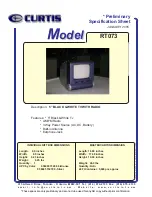
1-1
Chapter 1 BASIC SAFETY PRECAUTIONS
Fire and explosions
Keep flames away
Do not use flames near the engine (in
the engine room). Fuel vapor or other
gas can catch fire and produce dan-
gerous situations.
Wipe off spilled fuel, oil and LLC
immediately and thoroughly. Spilled fuel, oil and LLC
may ignite and cause a fire.
Store fuel and engine oil in a well-ventilated area.
Make sure that the caps of fuel and engine oil contain-
ers are tightly closed.
Keep engine surrounding area
tidy and clean
Do not leave combustible or explosive materials, such
as fuel, engine oil and LLC, near the engine. Such
substances can cause fire or explosion.
Remove dust, dirt and other foreign materials accu-
mulated on the engine and surrounding parts thor-
oughly. Such materials can cause fire or the engine to
overheat. In particular, clean the top surface of the
battery thoroughly. Dust can cause a short-circuit.
Care for fuel, oil and exhaust
gas leakage
If any fuel, oil or exhaust gas leakage is found, imme-
diately take corrective measures to stop it.
Such leakages, if left uncorrected, can cause fuel or
engine oil to reach hot engine surfaces or hot exhaust
gas to contact flammable materials, possibly leading
to personal injury and/or damage to equipment.
Use explosion-proof lighting
apparatus
When inspecting fuel, engine oil, coolant, battery elec-
trolyte, etc., use a flameproof light. An ordinary light-
ing apparatus may ignite gas and cause it to explode.
Prevent electrical wires from
short-circuiting
Avoid inspecting or servicing the electrical system with
the ground cable connected to the battery. Otherwise,
a fire could result from short-circuiting. Be sure to dis-
connect the battery cable from the negative (-) termi-
nal before beginning with the work procedure.
Short-circuits, possibly resulting in fire, may be
caused by a loose terminal or damaged cable/wire.
Inspect the terminals, cables and wires, and repair or
replace the faulty parts before beginning with the ser-
vice procedure.
Keep fire extinguishers and a
first-aid kit handy
Keep fire extinguishers handy, and
become familiar with their usage.
Keep a first-aid kit at the designated
place where it is easily accessible by
anyone at any time.
Establish response procedures to follow in the event
of fire or accident. Provide an emergency evacuation
route and contact points and means of communication
in case of emergency.
114/242
Summary of Contents for R33C3
Page 2: ......
Page 94: ...92 242 ...
Page 95: ...10 Appendix 10 1 Appendix A Engine user and maintenance manual 93 242 ...
Page 96: ...94 242 ...
Page 98: ...96 242 ...
Page 115: ...113 242 ...
Page 135: ...133 242 ...
Page 145: ...143 242 ...
Page 179: ...177 242 ...
Page 191: ...July 2009 Pub No 99610 29120 OPERATION MAINTENANCE MANUAL 189 242 ...
Page 192: ...Printed in Japan Pub No 99610 29120 190 242 ...
Page 193: ...10 2 Appendix B Alternator user and maintenance manual 191 242 ...
Page 194: ...192 242 ...
Page 196: ...194 242 ...
Page 227: ...Installation and maintenance R250 A V R 4067 en 2009 05 b LEROY SOMER 11 225 242 ...
Page 242: ...14 LEROY SOMER 2010 11 f Installation and maintenance R438 NOTES 3971 en 240 242 ...
Page 243: ...LEROY SOMER 15 2010 11 f Installation and maintenance R438 NOTES 3971 en 241 242 ...
















































